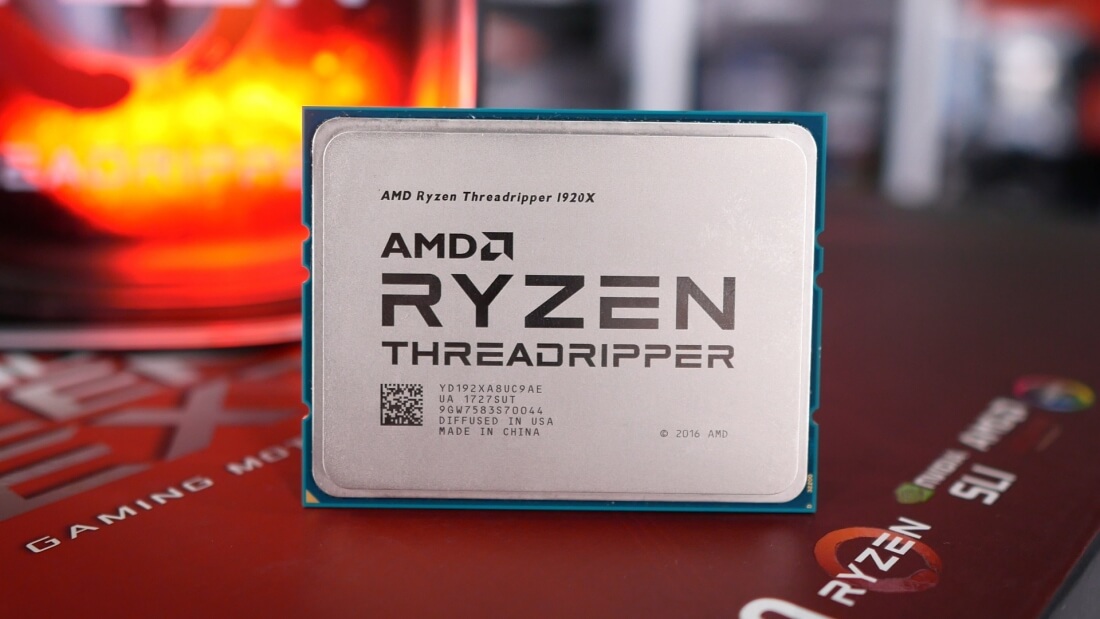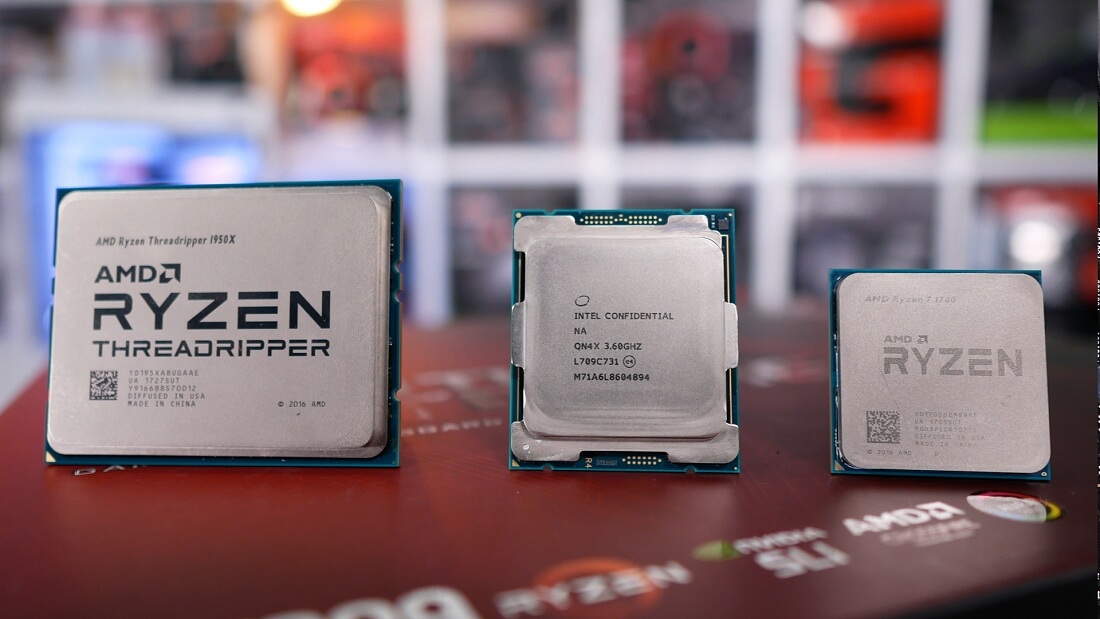Core i9 Killer: Who Is It For?
That was a lot of data but it all indicated one thing: total domination by AMD's new Threadripper processors. Their only weakness was gaming but there's really no point in buying Threadripper for that. If your goal is great gaming performance and you have $1,000 to spend on a processor, get the $340 Core i7-7700K and pocket the change for the best GPU you can afford. The 7700K is significantly cheaper and much better suited for gaming.
The reason I've recommended the Ryzen 5 1600 over the i7-7700K in the past is because it's a much cheaper part ($215) on a more affordable platform, and it will deliver the same experience for 90% of gamers out there. So again, while the 7700K is the best option if you want the ultimate gaming experience with maximum frame rates, Ryzen makes more sense in terms of value.
So Threadripper may not be ideal for gaming but it's still capable and it's likely much better than Intel's Xeon Gold 6130 for example, a $1,900 16-core/32-thread server chip that operates at a base frequency of only 2.1GHz.
But enough about gaming, as that clearly isn't the point of these 12-core and 16-core CPUs. Productivity is what matters here and for serious workloads Ryzen has already proven to be a beast. Threadripper takes things to a new level, though.
We now have a $1,000 processor from AMD and compared to the competition it's actually worth the asking price. Thousand dollar desktop processors have been around for some time now, but it's been a while since we've seen such an expensive solution from AMD. Threadripper certainly offers the best bang for your buck in this category.
Looking back at Broadwell-E, Haswell-E, Ivy Bridge-E and so on, Intel has been hands down the best option for power users for the simple fact that they were the only choice. Intel has won by default over the past five-plus years.
Back when Intel had no competition, the pricing of early Extreme Edition CPUs bothered me, but how can you complain when there's no alternative? By the time Haswell-E came around, we'd kind of accepted the $1,000 asking price for a flagship Intel part, which at the time was an 8-core/16-threaded chip. Then Broadwell-E came around and Intel couldn't imagine a world where they would return to facing stiff competition, so they went wild with pricing and we ended up with the outrageous $1,700 6950X.
Now, Skylake-X and the X299 platform are not bad. Yes, there are a few head-scratching aspects, but overall they're good products. The problem is with their price, or at least how that shakes out when you compare it to performance. Skylake-X has also improved value-wise, but as we said previously when comparing the 7820X and R7 1700, we've kind of just gone from stupid pricing to a little less stupid. Meanwhile, AMD has been more aggressive setting the Ryzen 7 beautifully, and Threadripper continues that strategy.
Because of pricing, core count becomes somewhat irrelevant: the Core i9-7900X and Threadripper 1950X both have a lot of cores and they both cost a grand. The key difference being that the 1950X often delivers 20-30% more performance while consuming almost 10% less power under full load.
In a nutshell, for the same price you get more CPU performance, lower power consumption and improved operating temperatures with Threadripper, so why would you buy the Core i9-7900X over the 1950X?
Intel recently announced the specs for its upcoming 12, 14, 16 and 18-core Skylake-X parts. At a guess, I would say consumers will need to spend at least $1,400 on the i9-7940X to match AMD's 1950X and I seriously doubt the 40% price premium will be worth it.
The X299 platform's lack of ECC memory support is another issue. Whereas Threadripper supports ECC, the Skylake-X chips don't and that means anyone serious about their workstation won't even consider Intel's high-end desktop platform. Unless Intel is willing to budge on pricing I can't see why anyone would invest in X299.
Shopping shortcuts:
At the beginning of 2017, who would have thought we'd see AMD dethrone Intel at the very top of the high-end desktop CPU segment. It certainly wasn't us, but we're glad we can look forward to some competition. It's an exciting time to be a PC enthusiast.
Pros: The Threadripper 1920X offers more performance, uses less power and runs cooler than the Core i9-7900X. It also supports ECC memory (Intel's X299 platform doesn't). Compared to the Ryzen 7 1800X, the 1920X touts quad-channel memory support and more PCIe lanes.
Cons: The $1,000 Threadripper 1950X is competitively priced but nonetheless comes at a hefty premium. Threadripper falls a tad behind when it comes to gaming.



